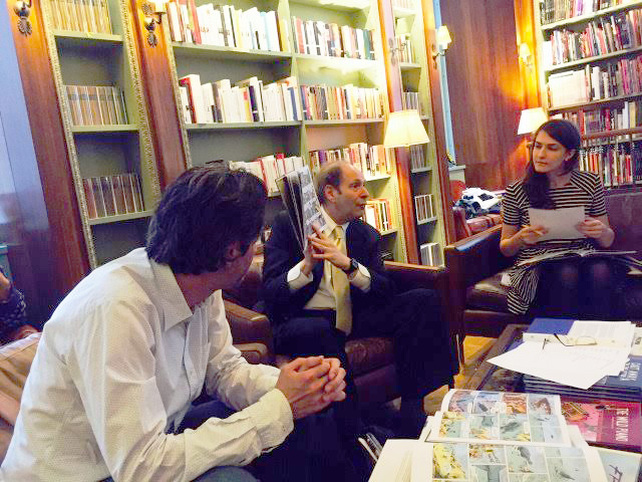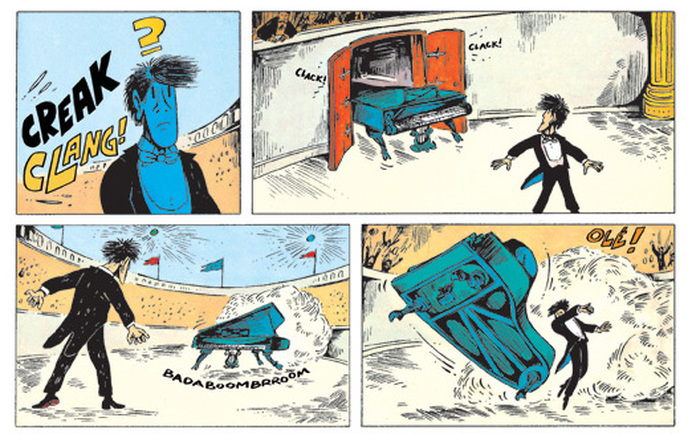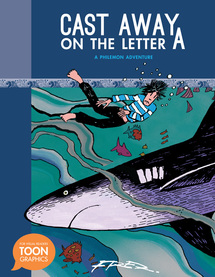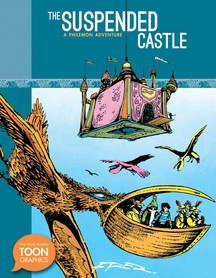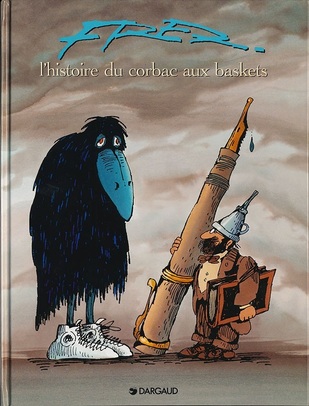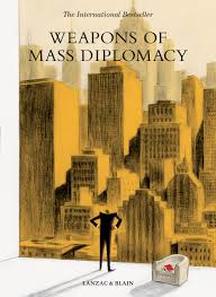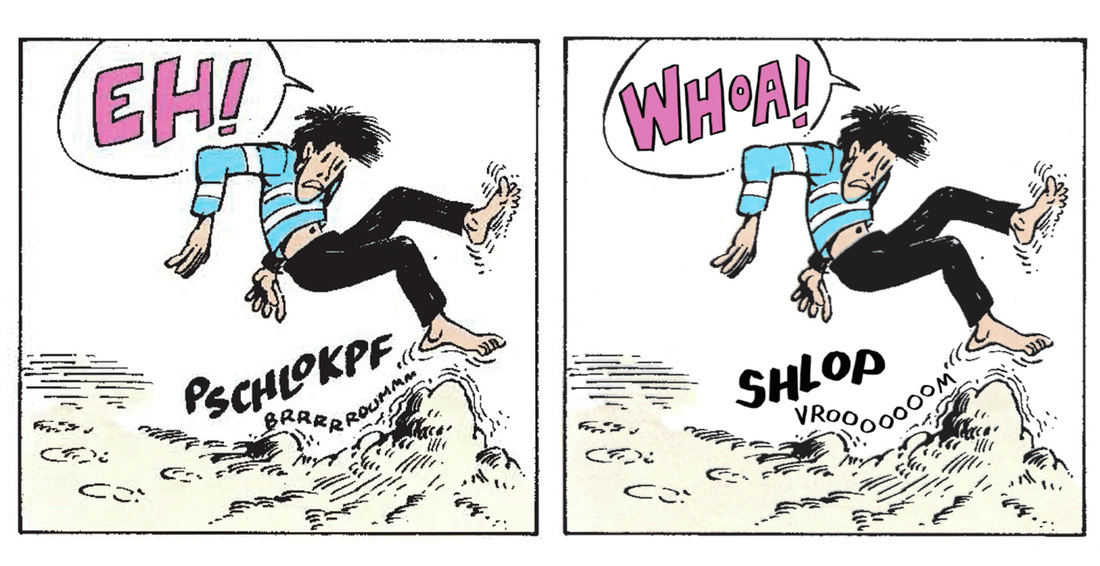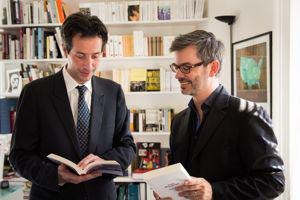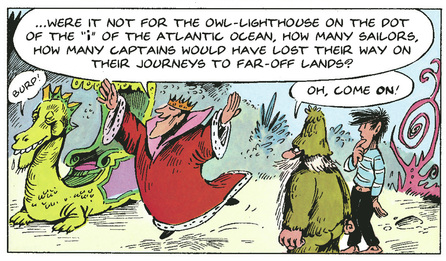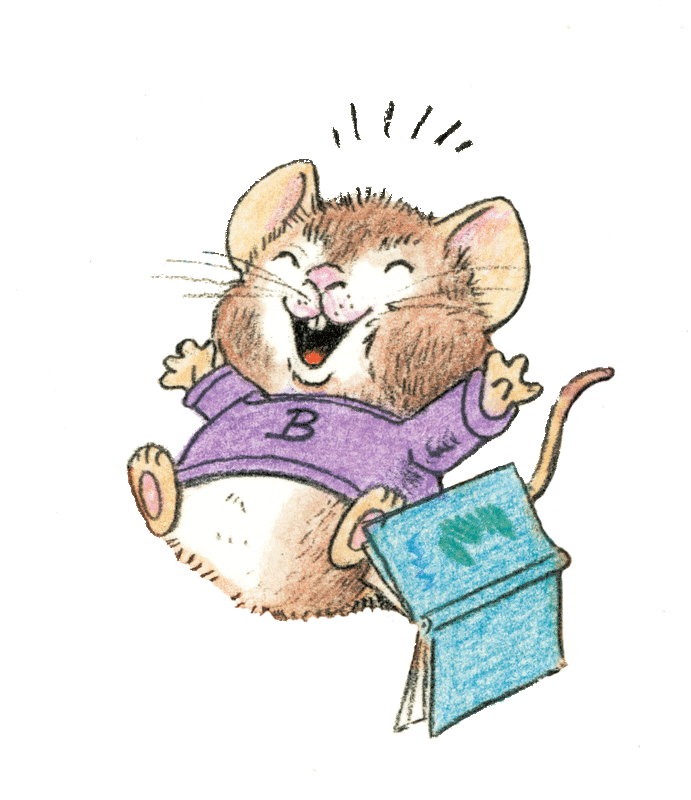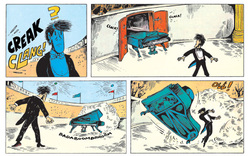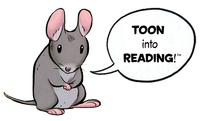Philemon, star of three TOON Graphics, was the talk of the town at the French bookstore Albertine recently. Président de l’Institut Français (a government agency whose mission is to spread French culture worldwide) and comics author Antonin Baudry led a spirited discussion as enthusiastic book club members, young and old, shared what moved and intrigued them about Fred's work.
| Cast Away on the Letter A, a TOON Graphic, the first volume in the Philemon series, was published in the Fall of 2014. It received rave reviews, including: “In a market teeming with graphic-fantasy tales, this offering is remarkably imaginative and refreshingly different…Not since Carroll's Alice has there been such a marvelous and incredible adventure.” --KIRKUS STARRED REVIEW - click for full review “Halfway between the humorous near-realism of Tintin and the hallucinatory Little Nemo in Slumberland, the book will be very entertaining for kids.” --ICv2 4 STAR REVIEW - click for full review 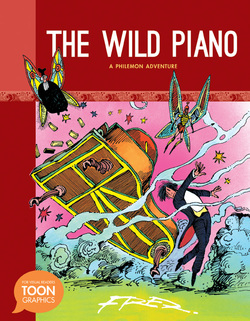 Just published: The Wild Piano Just published: The Wild Piano "Philemon is my new favorite companion. He's brave, resourceful, and knows what to do when attacked by a lamp." --Lemony Snicket "A classic for absurdists of all ages!" --Art Spiegelman "Fantastic, smart, mind-expanding reading!" --Jon Scieszka "The best kind of comics: a boy, his talking donkey, nonstop escapades and funny drawings! --Jeff Smith | Our own Richard Kutner, the English translator of the Philemon books, discussed his working process. During translation, Kutner tackled the challenge of inventing English onomatopoeia, or sound effects, for the book. "When we first started working on the Philemon books, we got a huge kick out of the zany French sound effects," says cartoonist Myken Bomberger who was tasked with lettering the stories in English. "SCHKLORPF!” “What’s that?” "The sound of a clock rising out of the sand.” “Ah, yes, of course.” "Sound plays a big role in Fred’s eccentric universe so I tried to hew as close as possible to Fred's original choices for the shape, color, and composition of the letters," adds Bomberger. An additional challenge of Philemon is to find the right dialogue for each character. Said Richard Kutner: “I had to find dialogue that suited the characters and suited the time. I couldn’t have a teenager in rural France in the 60's saying ’Yo dude!’ ” He also had to consider Philemon’s development as a character. “You see his evolution as a character through the different books. He gets much bolder and much more courageous… As he moves through the adventures, he’s able to accept all the ambiguity without being so fearful of it. His boldness, I think starts when he fights the Wild Piano. His clothes change at that point: he's fitted for a set of tails to face the wild piano. And after that he seems to be much more confident.“ 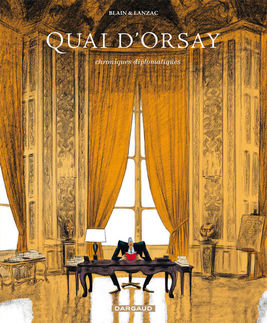 Baudry chimed in and related these challenges to the challenges he faced translating his own comic, Quai D'Orsay (which he wrote under the pseudonym Lanzac.) “The thing was that in French we had invented totally new onomatopoeia. So the translator translated it into things that existed that could be audible for an American audience, and I told him, no, we should make up a new one. We spent hours and hours on the phone–he was in San Francisco–trying out various Germanic-sounding sound effects.” He noted that in some ways, the translation is a better book, merely because the text was so deeply considered during translation. “It’s really part of the culture, the way someone is. We had to change his language and militarize his language somehow to give him a more neat character… I learned a lot about English language, and it was so much fun… In the way you write in the original language, you just don’t pay the same amount of attention.” Baudry then opened comments to the room, sharing what Philemon meant to him as a child, opening him to different realms of reality, some more accepted than others. Featuring fantastical settings like islands that are each a different letter in the words “ATLANTIC OCEAN” on the map, characters such as a talking donkey, a magician uncle, and a centaur butler, and references to everything from the Raft of the Medusa to the French Revolution, there’s plenty in Philemon’s journeys to draw in any reader. With such a broad array of influences, Baudry asked: "Do you feel that Philemon reflects your life?" The answers were varied, but everyone, young and old, had something to say. Many felt that Philemon reflected their lives, or that Fred's whimsical and intelligent style drew them into the book more than they expected. They felt invited to play in the strange islands comprised of the letters of the words "Atlantic Ocean", and many found themselves examining their accepted realities. Comparisons were made to subjects as varied as Alice and Wonderland and medieval mythology, reflecting the broad array of references in the Philemon books. One member related Philemon to American authors, remarking: “I found that the drawings remind me of Doctor Seuss,” while another brought up an untranslated of Fred’s works, L’histoire du Corbac aux Baskets. “This was my first exposure to Fred, and this was the extraordinary experience I had when I read it. I thought ‘Where did this come from?’ And your comments really explained to me what I was experiencing, before that I don’t think I really could have described it as well.” TOON asked book club members what they thought of the talk and what comics they enjoyed reading growing up. Many had read other Bandes Dessinees, such as Tintin and Asterix, while some drew from classic American comics, such as Little Lulu, Archie, and Dennis the Menace. Everyone, young and old, felt that comics had played a strong role in their upbringing, and that Philemon was a rich and interesting series to read. Afterwards, Kimberly Corliss, of the Albertine said this: "I am excited about the prospect of graphic novels being used as educational tools for visual and linguistic literacy and admire Richard Kutner’s work to promote their integration in the classroom." Kutner has translated four of the Philémon series, two of which have already been published by TOON Books (Cast Away on the Letter A and The Wild Piano). The third, The Suspended Castle, which he shared with the attendees, is coming out in October, and the fourth, The Impossible Voyage, is due to be published in 2016. Have you read any of the Philémon books yet? How has Philémon affected you? What do you think of the French efforts to promote books (in supporting projects like the Albertine bookstore in the French Consulate building) and comics? |

